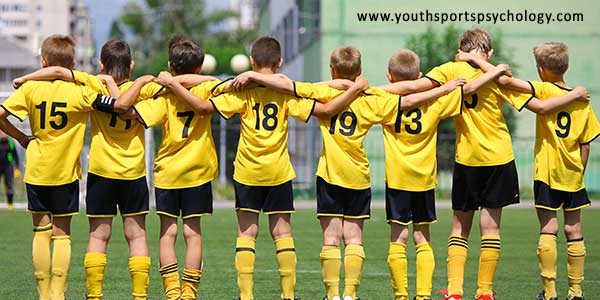Encouraging Young Athletes to Learn “Superpowers” in Sports
Young athletes can learn a number of “superpowers” by participating in sports–traits such as courage, resilience and character.
That’s the message from Beth Brown, an educator with a Ph.D. in sports psychology and the author of the children’s book series, “Adventures with Divot and Swish.” She’s also a former member of the University of Oklahoma basketball team as well as the conference champion women’s golf team.
Teaching sports kids to be courageous is all about encouraging them to try something new or trying out a skill that’s one level above their current skill level, she told us during an interview on our Ultimate Sports Parent podcast.
The idea is to set kids up for success by encouraging them to take small steps and to challenge themselves.
This is one reason why athletes will age up to the next level of competition.
If kids can’t meet their goal, it’s important to tell them that they’re learning when they fail, she says.
Being courageous in sports also means being morally courageous, says Brown.
“You want to create an environment for kids to have the courage to do the right thing,” she says. “Specifically, they should learn to take a stand for kindness.”
To encourage kids to take a stand for kindness–especially in the face of bullying–parents should model kindness, especially when they’re communicating with coaches and referees.
It’s also important to create a culture in which sport is inclusive and everyone has the opportunity to participate.
To teach kids the superpower of resilience, sports parents can begin by teaching young athletes to look for new ways to adapt and adjust then things get tough in sports.
Parents should also helps kids build a positive support group. These are people who can help athletes with physical and emotional skills–coaches and other sports parents, for example.
“If we can teach athletes it’s a positive behavior to ask for help and provide resources, this will help with resilience,” Brown says.
Overcoming challenges and setbacks in athletics helps kids grow and develop resilience. You want athletes to learn to accept that sports don’t always go as planned and making adjustments and adapting helps them in life too.
Listen to the entire interview with Canfield:
Related Articles on Youth Sports:
- Creating a Culture of Connection and Encouragement in Youth Sports
- How Parents Can Encourage Kids Without Pressure
- When Positive Encouragement Backfires in Young Athletes
*Subscribe to The Sports Psychology Podcast on iTunes
*Subscribe to The Sports Psychology Podcast on Spotify
The Composed Sports Kid

“The Composed Sports Kid” audio and workbook digital download program for young athletes and their parents or coach helps kids cope with frustration and anger in sports. Help your sports kids learn how to manage expectations and let go of mistakes so they can keep their head in the game.
The Composed Sports Kid system is really two programs in one–one program to train parents and coaches how to help their kids practice composure, and one program that teaches young athletes–ages 6 to 13–how to improve composure, let go of mistakes quickly, have more self-acceptance, and thus enjoy sports more!

